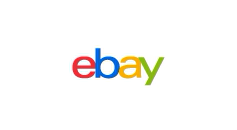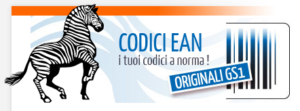Barcodes are an integral part of our daily lives, but misconceptions about them often circulate. In this article, we debunk some of the most common myths surrounding barcodes and provide clarity on how they actually work.
The barcode indicates the place of product manufacture. False!
It’s often believed that a barcode on a product directly indicates the place where it was manufactured. However, this assertion is not accurate. The primary purpose of a barcode is to identify the product and provide information about its origin through a numbering structure managed by GS1. While the barcode may indicate the geographic location of the GS1 office that issued it, it does not specify the product’s place of manufacture directly. For example, a product could be manufactured in one country and packaged and marketed in another.
(Source: GS1)
The barcode must be registered to the manufacturer. False!
Some people believe that a barcode must be registered to the manufacturer of the product. However, the use of a barcode is optional and primarily serves to streamline the purchase process, facilitating quick product identification at supermarket checkouts. Many retailers only require that the barcode is valid and matches the product. In fact, only a few entities in the retail sector, such as Amazon and some national distribution channels, insist on the associated information of the barcode being traceable to the manufacturer.
Any code can be used to identify a product. False!
False. Although a barcode doesn’t necessarily have to identify a manufacturing location or have a specific owner, it must be unique and distinctive to avoid confusion. Barcodes must adhere to GS1 standards to ensure accurate and reliable product identification.
Barcodes can only be obtained through the local GS1 office. False!
While many local or national GS1 offices provide barcodes through rental arrangements with membership fees and leasing fees, there are also codes available that are not tied to such conditions. These codes must, however, guarantee uniqueness and identification through GS1 search channels. Therefore, obtaining barcodes can be done in various ways, depending on your business needs.
Online barcode sellers are illegal. False!
The legality of online barcode sellers depends on their reliability and professional ethics. While some vendors may offer counterfeit or non-compliant barcodes, there are also reputable services that provide authentic and certified GS1 barcodes. It’s essential to research and choose reputable barcode providers. In our case, we always distribute GS1 barcodes, including certified ones, and they can be registered to the manufacturer through our Coding Service.
GS1 barcodes always require membership fees and renewal charges. False!
Some services offer barcodes without expiration dates and membership fees. These services can be a convenient solution for businesses that want barcodes without committing to recurring costs. However, it’s important to review the specific terms and conditions of such services to ensure compliance with your business needs. Our exclusive services can provide barcodes without expiration dates and without membership fees, both through the Standard Service and the Coding Service.
Conclusions
Barcodes are a vital tool for product identification and tracking. It’s essential to understand the basics and dispel common misconceptions surrounding them. With the right knowledge and resources, businesses can effectively utilize barcodes to enhance the shopping experience and operational efficiency. Leveraging our extensive industry experience, we are committed to providing reliable, certified barcodes to help you achieve your business objectives responsibly.











